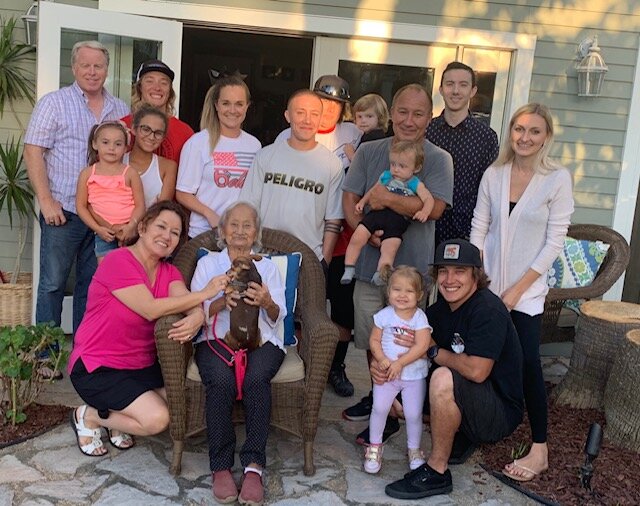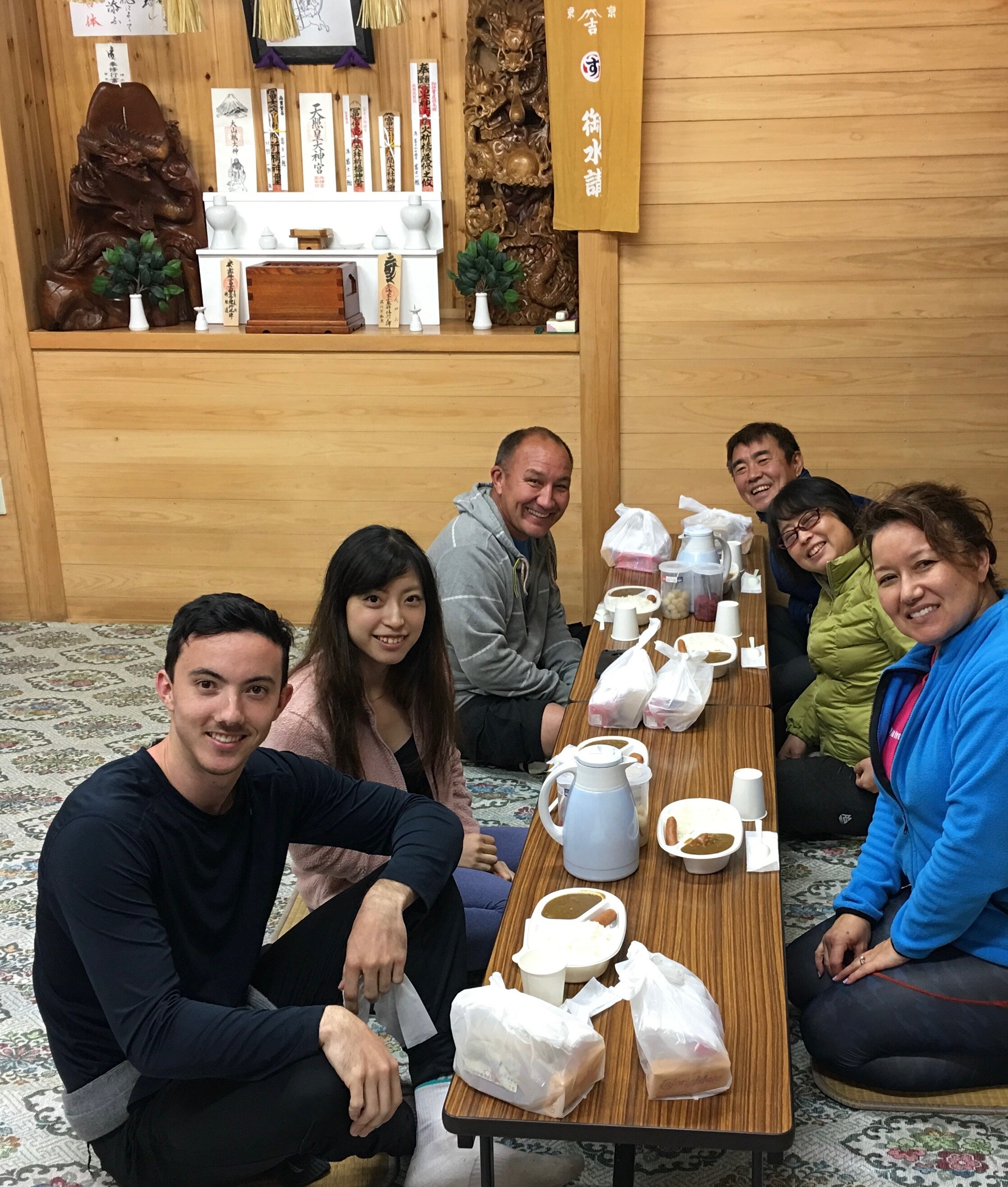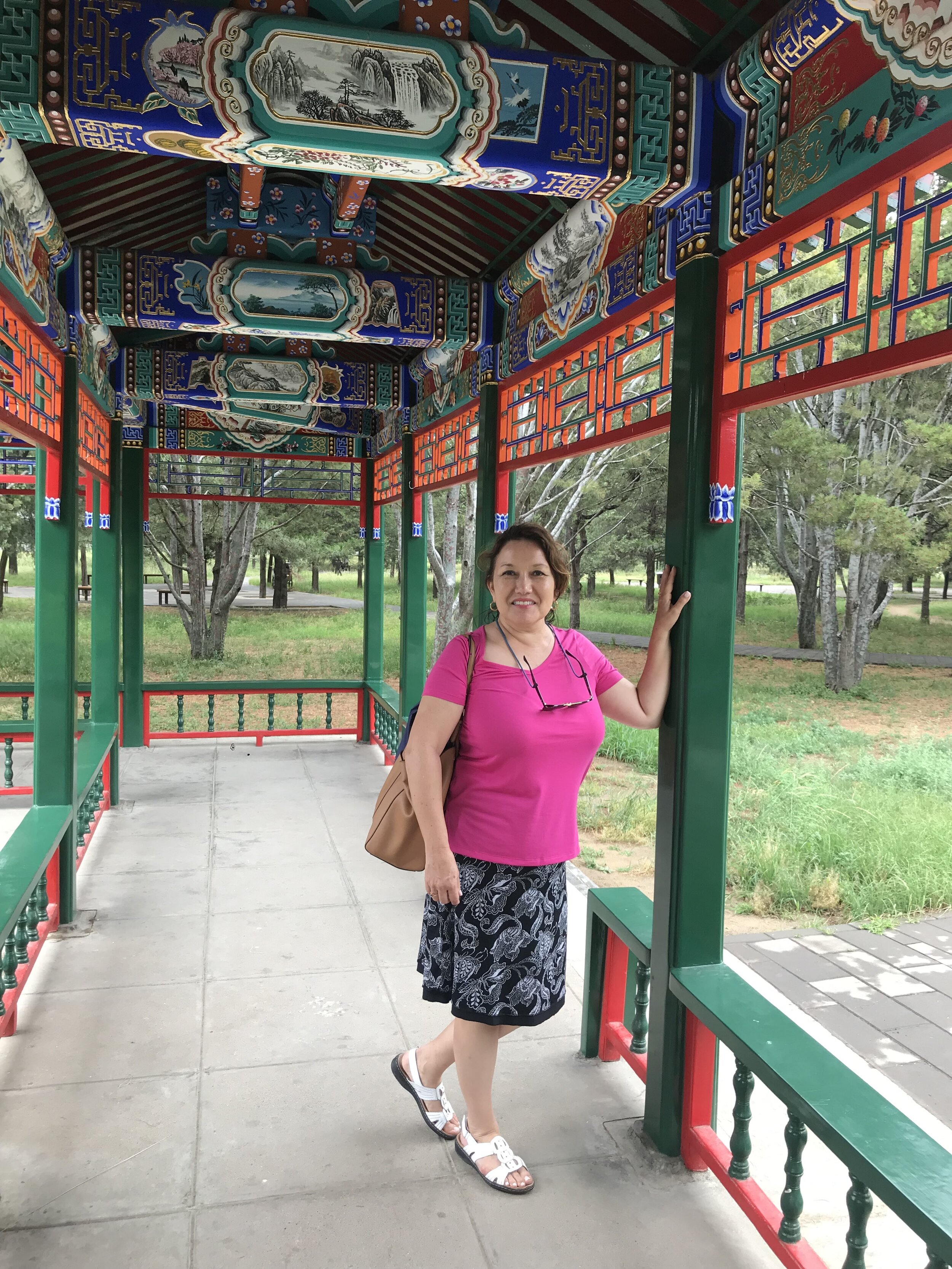"An Indomitable Spirit" and 9 Questions with Rene Swan of United Valley
Question 1:
What's your background? Where'd you grow up?
Rene:
I was born in Florida, but I grew up in California in San Diego County, what's really called East County where you find the cities of La Mesa, El Cajon, Lakeside and Santee.
We moved around a bit, but we stayed in that general region. I went to high school at El Capitan High School, and I went to college at San Diego State. I ended up not graduating. That's a whole other chapter. Actually, I'm pursuing my bachelor's degree right now.
Question 2:
Your father was in the Navy for almost 20 years, and your mother is described as a “strong, small Japanese lady with an indomitable spirit.” How did they influence you?
Rene:
They were quite the pair together. It was really interesting to grow up in a household that had two really different cultures colliding.
They met in Yokosuka, Japan around 1959. My Dad was serving in the US Navy and my Mom worked at a pizza restaurant across the street from the Naval base there. They actually didn't know each other for very long. He proposed at about three weeks. She loves to tell her reaction to his proposal. She said, “You don't even know me!” But she married him. They got married in 1960.
My Mom was a transplant to the US—the only one of her siblings who ever left Japan—and it wasn't easy for her. My Mom tried to raise Japanese kids in San Diego County and American society.
Japan is such a respectful society, especially respectful of your elders. The same is true of the military, so I had a great deal of parental training to be as respectful as possible, and also really industrious. Both parents worked so hard. My Dad, even during his Navy years, always had one or two side hustles. We even raised animals on a little hobby farm, and sat out on the corner and sold lettuce, cantaloupe or firewood. We were a hard-working family.
It wasn't easy growing up. We had challenges. I think I was the only part-Japanese kid that I knew, at least then in San Diego County. And so, we grew up with some of the challenges of feeling a little bit outside of some of our peers and the other kids.
I have a really strong sense of patriotism and pride for my Dad and his many years of service. Dad spent 21 years in the Navy. After retiring, he spent another 15 years in the civil service. He served his country well. He was so proud of his military service, and he helped so many military veterans with their pay and benefits issues. He proudly spent his last 8 months of life at the VA Community Living Center in Grand Junction, Colorado. I was especially proud of his ‘helping’ spirit.
Even while he was a patient there, he prided himself in folding all the cloth napkins for every group meal and managing the game cart. He would harass people until they would agree to join in the dining room and play dominos. He was a great salesman.
I still love the Navy and the military in general. I have so much respect for those who choose to serve. When you serve in the military, your whole family serves in the military. Everyone sacrifices and carries the load for others. And I'm very proud to say that I have a 30-year-old son who's a Navy Lieutenant. He graduated from the Naval Academy and served on a guided missile cruiser and a destroyer prior to serving in Naples, Italy. He'll be exiting sometime in 2021.
Question 3:
What are your parents’ names?
Rene:
My Dad was Richard McClanahan. He went by Mac, Mac McClanahan. And my Mom is Michiyo McClanahan. She goes by Mich.
You know, as a young person, I was Rene McClanahan. And you can imagine the expectation? Rene is a French name. McClanahan's Irish. No one is expecting a half-Japanese girl to walk in the room. I am really proud of my heritage and am the family ‘historian’—keeping tabs on extended family and managing the family tree documents.
Question 4:
Has your entire career been in insurance or have you been in other industries?
Rene:
Prior to insurance, I obtained an associates degree at Grossmont Community College and then worked on my bachelor's degree as a civil engineering major at San Diego State.
I took a job in the civil service as an engineer technician. We were basically the grunts for the engineers. We did the paperwork and reviewed the submittals and submissions. It didn't take me long to realize, I didn't really fit in with this group of people. I found myself to be much more social and just wasn’t passionate about the technical side of engineering. I quickly changed majors to business and real estate and did a few other things while working as a legal secretary during my college years.
And then, I thought, “I want to be a lawyer.” It was a fascinating field and every case would present a new challenge.
So I enrolled in law school in San Diego, and soon met my future husband. Then things just moved quickly. In a period of about 18 months, we relocated, had new jobs, and got married. Just a few months later, we were expecting our first child.
A lot changed and law school was no longer on the front burner. But I loved law school. The Socratic method of learning was fascinating to me. I did well my first year, but I didn't finish. I do regret that.
Now I'm working on my bachelor's in business administration at Fresno Pacific University. It's one-night a week, but a lot of work. I'm the old bird in the class, and that's okay. I've got about 20-plus years on the other students. I enjoy being a resource to some of my other cohorts. I have always been an advocate of lifelong learning. It’s one of the things I find myself always encouraging my employees to do—be a lifelong learner.
Question 5:
You're a gardener and you like to grow things, correct?
Rene:
I do. That's another thing that comes from my Mom. We always had a vegetable garden growing up, but a vegetable garden represented work. It wasn't until I had kids that I thought it would be rewarding to grow something.
Growing up, I was always told I couldn't grow flowers, only what could be eaten got planted, so my preference is to grow flowers and flowering shrubs, until this whole COVID world came along.
Now, we've started growing vegetables in our little COVID garden—and I love it. You get to enjoy what you grow: jalapenos, chili peppers, and tomatoes. Chop it up and put it in a salad, an omelet or share it with friends and neighbors.
I love the look on my Mom's face when I can bring her something from the garden, or even take a video of the garden for her. I grew a single Japanese eggplant plant, and that darn thing is so prolific. We've probably produced 40 little eggplants or more off this single Japanese eggplant. It’s one of my Mom’s favorite vegetables.
Question 6:
How is AgencyKPI helping United Valley grow?
Rene:
I love that we were on the ground floor when AgencyKPI wasn't even a gleam in the eyes of its founders yet. I’d been knocking around ideas with other agency network CEOs and presidents, and looking at questions like, “What are the resources that we all need? What are the problems that we all collectively could use some help solving?”
Thankfully at the time, Trent Richmond was one of those CEOs running a network. He took it from there, met Bobby, and you know the rest of the story. So it's been really enriching having these relationships over many years because I feel like we're all in this together.
I don't know if you've ever lived in a brand-new neighborhood, but you really kind of gel together when everybody joins a brand-new neighborhood. It feels a lot like that. This is our network neighborhood. We help each other and support each other.
With AgencyKPI, it's about helping us have a new kind of conversation with our member agencies. Interestingly, United Valley just celebrated 37 years this week, so we have a long history and a culture of doing a great job at selecting awesome agencies and then leaving them alone, while also providing them tools, like AgencyKPI, to help them grow.
In today's world—with AgencyKPI—we can still do a great job of selecting awesome agencies, but then sit with them side-by-side and take a look at their books of business, as well as sit with our carriers and have much more meaningful planning and growth conversations. So we're excited about it.
Also for us, AgencyKPI immediately allowed us to let our business analyst spend his time on something else. He had been the one and only guy who could go out and get our member data for us and compile it. We had an aspirational goal of doing that data grab once a year—and we weren't getting to it even once every 18 months. There were just too many other things going on.
So just right there, turning AgencyKPI on for us allowed us to have more human resources available to do other strategic things to help better serve our members.
Question 7:
Have you been to Japan or Asia?
Rene:
My first trip to Japan was when I was 14-years-old with my Mom and siblings. My mom just turned 86 last month. She has dementia. Just prior to that diagnosis, we learned that her older sister, who was still living in Japan, had Alzheimer's. So we made it a point in 2017 to go to Japan for two weeks and go see her sister, family and my cousins. That was the last time she got to see her sister, who passed away last year on Mother's Day.
I love Japan. It’s a beautiful country with lovely people. I’d love to travel in Japan and explore the countryside. Asia is fascinating to me.
Last year, I went to see my youngest son in China and spent nine days with him. He was teaching English as a second language at Henan Polytechnic University in Jiaozuo, a “small town” of about 4 million people in central China. We started out in Beijing, enjoyed a lot of the tourist destinations, then settled in Jiaozuo for the rest of the trip.
(Click and rollover images for captions.)
It’s just fascinating to see these worlds collide. All the tremendous growth, yet at the same time, the political climate and differences in government control. There are very interesting differences in their culture. As progressive as they are with technology, there are so many contradictions. I needed a hotel room, and we called seven or eight different hotels before we could find one that would accept a “foreigner.” That's an example of something you just wouldn't have even thought of—that it would be difficult to get a hotel room for an American who is going to pay full price for several days. Also interesting is that the foreigners’ rate is more than locals pay. It’s such a densely populated country; people don’t want to stand out or ask questions. But, in a more intimate setting, like enjoying daily breakfast noodles at my hotel, the clerk was very friendly—or just curious.
There were so many contrasts. You'd hop on a bullet train that represents the greatest advances in technology as you go by farmland that is still being farmed by hand with old tractor equipment—or no tractor equipment. There were large cities we would pass that seemed to pop up in the middle of nowhere. Some of these cities were partially constructed, with high-rise buildings that were incomplete and abandoned. There is such a race toward progress.
There were some things I really admired too. Even in these really large cities, there's a tremendous sense of community. People go out at night and walk in the park and exercise. Women who are my age join groups, seemingly randomly, that are dancing—some traditional and some modern dancing. The children all work so hard in school because it is so competitive. So, in the parks in the evening you only see very small children, since the school age children are home studying. And women my age get to retire in their country—at 55!
I would love to go back because China's such a large country, and you only can see what you can in a reasonable time period. It's pretty fascinating to explore another culture and take in the rich history of a culture that has been around so long.
(Click and rollover images for captions.)
Question 8:
Why have you always had a big heart for animals and pets?
Rene:
That's a great question. I just always have. Maybe it’s because both of my parents loved animals. We always had pets of one sort or another and raised livestock on a hobby farm. At one point, we had over 20 cows and over 100 pigs.
Today, my husband and I are on two-and-a-quarter acres in Madera, just north of Fresno. So it's nice to have that space. We have been here 20 years now and have raised chickens, sheep and horses, and have always had a dog or two—or three!
I think where I feel most at peace is outside in the yard tooling around in the garden. I call it my “Snow White” time, just talking to the birds and walking around. It's just very peaceful and relaxing.
(Click and rollover images for captions.)
We had a little Jack Russell terrier. We called her Buffy—Buffy The Pit Bull Slayer—because she was rescued after an attack by a pack of pit bulls. She was fostered by one of the employees at Animal Control for four months. She would get very nervous anytime we would walk by more than one other dog. She lived to be about 13. We lost her earlier this year and we're finding that perfect place in the garden for her remains.
We had horses at one point, when we first came to Madera. We found a horse for sale on a bulletin board outside the cafe that we go to. So we buy this horse, right? We don't know what we're doing and shoot, she wanted to run! Little did we know, at the time—that’s what a thoroughbred is meant to do!
Anyway, we soon became very interested in having horses and horseback riding, so we bought my horse—JayJay, an Arabian. And not long after that, my husband got his quarter horse, GungaDin, which he really loved. That horse lived to be 37. He was spunky. We had four mares who lived next door—I think he was really living for them.
Question 9:
One of your employees said that you're like a superwoman. She (or he) said, "I don't think she ever sleeps." Care to comment?
Rene:
I have various times of productivity and I'll partly blame my husband, who is a very early riser. He's up at about four in the morning every morning, and so almost always, so am I. We enjoy early coffee and then we both get started working on planning out our day.
If I am working late night hours, I sneak around it just a little bit with my staff...I write my emails at various hours and set them to send the next day. So it's not quite so obvious. But yeah, if it's a matter of productivity for me and if I can't sleep, I'll get up and start working on things.
When you run a business, you sometimes can’t turn it off anyway. So yeah. Guilty!
I like to remind our people that they are not expected to work my crazy hours. We do work hard and I have a great team that enjoys having fun together. It gives me great pleasure knowing we are building upon the legacy of those who came before me and grooming those who will carry our concierge model into the future.
















